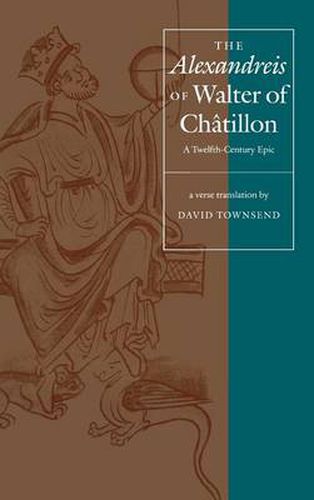Readings Newsletter
Become a Readings Member to make your shopping experience even easier.
Sign in or sign up for free!
You’re not far away from qualifying for FREE standard shipping within Australia
You’ve qualified for FREE standard shipping within Australia
The cart is loading…






This title is printed to order. This book may have been self-published. If so, we cannot guarantee the quality of the content. In the main most books will have gone through the editing process however some may not. We therefore suggest that you be aware of this before ordering this book. If in doubt check either the author or publisher’s details as we are unable to accept any returns unless they are faulty. Please contact us if you have any questions.
Written sometime in the 1170s, Walter of Chatillon’s Latin epic on the life of Alexander the Great loomed as large on literary horizons as the works on Jean de Meun, Dante, or Boccaccio. Within a few decades of its composition, the poem had become a standard text of the literary curriculum. Virtually all authors of the thirteenth through fifteenth centuries knew the poem. And an extraordinary two hundred surviving manuscripts, elaborately annotated, attest both to the popularity of the Alexandreis and to the care with which it was read by its medieval audience.
$9.00 standard shipping within Australia
FREE standard shipping within Australia for orders over $100.00
Express & International shipping calculated at checkout
This title is printed to order. This book may have been self-published. If so, we cannot guarantee the quality of the content. In the main most books will have gone through the editing process however some may not. We therefore suggest that you be aware of this before ordering this book. If in doubt check either the author or publisher’s details as we are unable to accept any returns unless they are faulty. Please contact us if you have any questions.
Written sometime in the 1170s, Walter of Chatillon’s Latin epic on the life of Alexander the Great loomed as large on literary horizons as the works on Jean de Meun, Dante, or Boccaccio. Within a few decades of its composition, the poem had become a standard text of the literary curriculum. Virtually all authors of the thirteenth through fifteenth centuries knew the poem. And an extraordinary two hundred surviving manuscripts, elaborately annotated, attest both to the popularity of the Alexandreis and to the care with which it was read by its medieval audience.